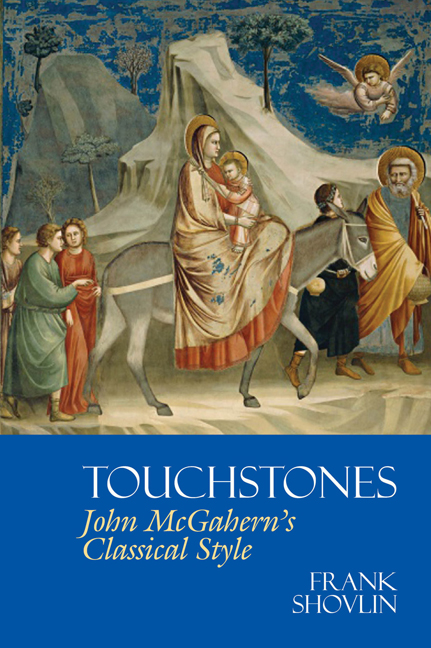Book contents
- Frontmatter
- Dedication
- Epigraph
- Contents
- Acknowledgements
- Touching Stones: Matthew Arnold and the Canon
- 1 We Other Clerks: James Joyce and the Classical Temper
- 2 A Walking Mirror: Stendhal, Horace, Nietzsche
- 3 One Lone Paperback: Tolstoy and Religious Sensibility
- 4 Magic: The Centrality of W. B. Yeats
- 5 Instinct: Douglas Stewart and Sex
- 6 The Fume of Muscatel: Yeats's Ghosts
- 7 Bohemian Rhapsody: Patrick Kavanagh and Generation X
- 8 Absurdity: Camus Comes to Clones
- 9 Aristocracy: Andrew Marvell, W. B. Yeats and the Curse of Cromwell
- 10 The Consolations of Nothingness: William Blake, W. B. Yeats and Prayer
- 11 Deliberate Happiness: W. B. Yeats and the Inner Life
- 12 Stranger in Paradise: Dante and Epic Style
- Conclusion: What Then?
- Bibliography
- Index
8 - Absurdity: Camus Comes to Clones
from Touching Stones: Matthew Arnold and the Canon
- Frontmatter
- Dedication
- Epigraph
- Contents
- Acknowledgements
- Touching Stones: Matthew Arnold and the Canon
- 1 We Other Clerks: James Joyce and the Classical Temper
- 2 A Walking Mirror: Stendhal, Horace, Nietzsche
- 3 One Lone Paperback: Tolstoy and Religious Sensibility
- 4 Magic: The Centrality of W. B. Yeats
- 5 Instinct: Douglas Stewart and Sex
- 6 The Fume of Muscatel: Yeats's Ghosts
- 7 Bohemian Rhapsody: Patrick Kavanagh and Generation X
- 8 Absurdity: Camus Comes to Clones
- 9 Aristocracy: Andrew Marvell, W. B. Yeats and the Curse of Cromwell
- 10 The Consolations of Nothingness: William Blake, W. B. Yeats and Prayer
- 11 Deliberate Happiness: W. B. Yeats and the Inner Life
- 12 Stranger in Paradise: Dante and Epic Style
- Conclusion: What Then?
- Bibliography
- Index
Summary
The struggle itself towards the heights is enough to fill a man's heart.
One must imagine Sisyphus happy.
Albert Camus, The Myth of SisyphusOn 4 January 1960 the French-Algerian philosopher and novelist, Albert Camus, was killed in a car crash near the small French town of Villeblevin. Thus ended the life of one of the most inspirational intellectual figures of the European twentieth century at the tragically early age of forty-six. Two months later he was fondly remembered in X magazine: ‘the loss is so great that we resent it bitterly; to measure its importance, we can ask ourselves what would have happened to the evolution of French thought and literature if, for instance, André Gide had disappeared when he was 46’. The obituary went on to paint Camus in heroic terms:
He loved men, in a world without God which compels man to assume the full weight and responsibility of life. He was himself a complete man and his mind could not work without his heart being in constant motion; he had courage in his lucidity; he had supreme integrity.
It is unsurprising that X should so memorialize this great figure of twentieth-century philosophy, wedded as it was to French intellectual life and the long tradition of thinkers and writers produced by that country.
To what degree John McGahern's respect for Camus comes from his time with the writers who gathered around X is not possible to say, but as a bright young writer of the 1960s with a sharp and enquiring mind, he could not but have been drawn to the impact made by Camus, his interest in the absurd and the ways in which this interest is brought to the fore particularly in The Myth of Sisyphus (1942) and in The Outsider (1942). To an even greater degree than was the case for Camus, the X circle was devoted to Samuel Beckett, the Irish writer who owes most to the Algerian philosopher, and a figure who remained important to McGahern's development throughout his writing life. Our first prominent hint that the absurdist worldview examined by Beckett and Camus was forming a bedrock of McGahern's thinking comes in his debut novel The Barracks, published three years after Camus's death.
- Type
- Chapter
- Information
- Touchstones: John McGahern’s Classical Style , pp. 114 - 122Publisher: Liverpool University PressPrint publication year: 2016



